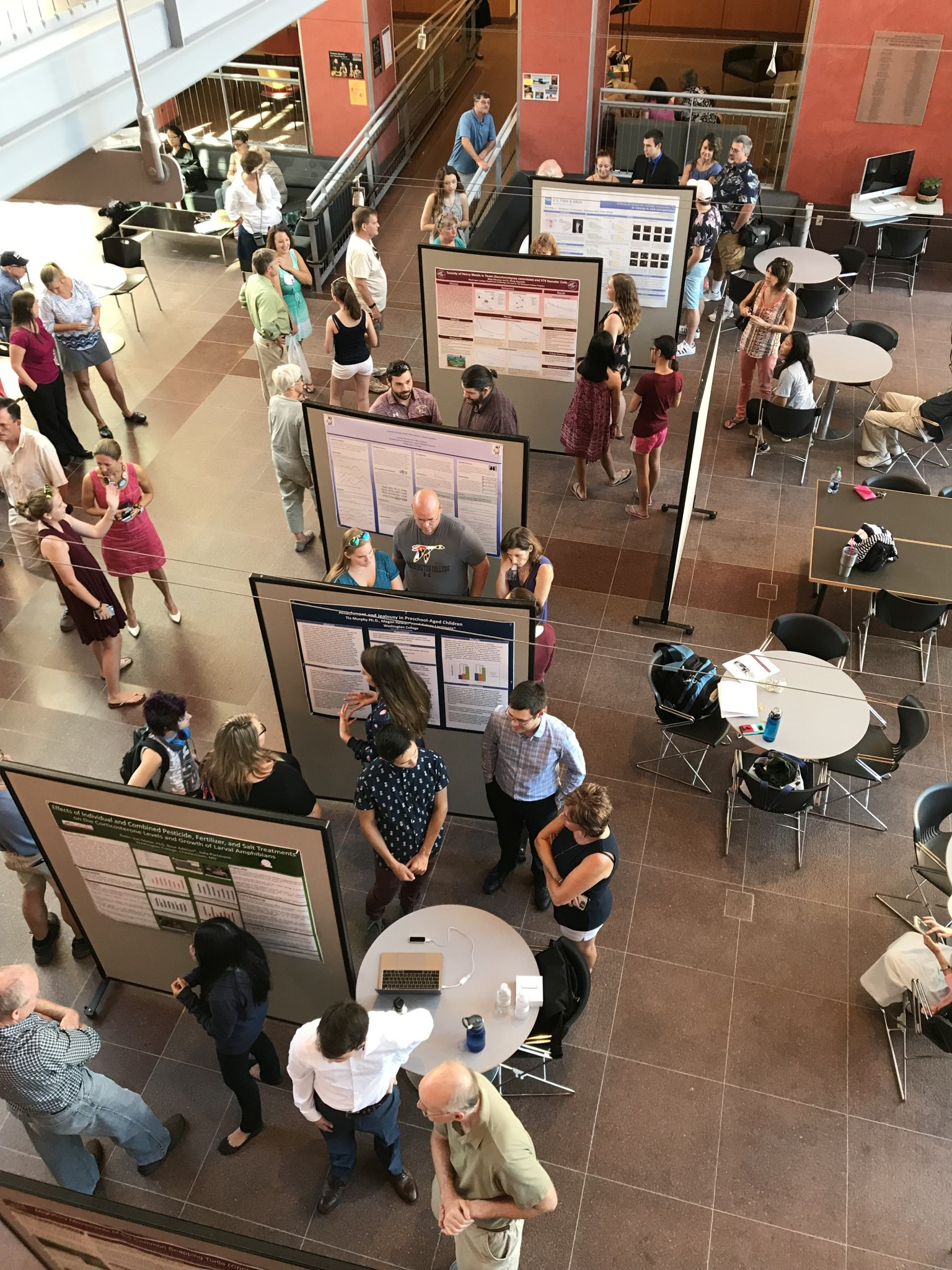

Psychology Senior Capstone
Every senior at Washington College must complete a Senior Capstone Experience (SCE), an independent project that is the culmination of their undergraduate studies.
Within the Psychology department the SCE can take two forms.
- The majority of students elect to conduct the data-driven thesis where they test their research question by collecting and analyzing data from human participants or with the use of animal models.
- Other students elect the theoretical review option. Here, students answer their research question through a critical analysis and evaluation of the existing literature.
Every SCE begins with conceptualizing of a research question which must be a novel exploration.
Seniors are given the autonomy to select their own research question based on the gaps they discover in the literature regarding their topic of interest.
Advisors do not require students to conceive of research projects similar to their own areas of interests. Instead, advisors are meant to guide seniors through their research discovery process regardless of topic. This allows students to explore any area of psychology that they are excited about and that would best prepare them for their future education or career.
Moreover, our students are conducting high-caliber projects independently. At other colleges and universities where students have an option to complete a thesis, it is frequently only the honors students who are selected, or the project is conducted as a team project.
Allowing every student the opportunity to conduct all aspects of an independent research project sets our students ahead of their peers on the path to success in graduate school and beyond.
The Psychology SCE is a year-long process and is graded by the SCE advisor based on the following criteria:
- 10% Fall Progress toward the SCE (meeting deadlines with solid products submitted)
- 10% Senior Assessment
- 20% Poster Defense (graded by two faculty members, one of which is the SCE advisor)
- 20% Process (turning in well-written drafts, incorporating feedback, acting as independently as possible, etc.)
- 40% Final Written Thesis
The Psychology SCE is graded as any other course and gets factored into each student’s grade point average.
Students begin their preparation for the SCE during Junior Seminar, which is held during the spring semester of their junior year. During their weekly meetings, students are provided information about the two thesis options, encouraged to explore literature in the area of their interest, formulate a research question, and present their topic and methodology ideas in a public format.
Students are paired with a faculty advisor during the second half of junior seminar. From then onward, students work one-on-one with their faculty advisor to solidify their research question and methodology and gain advice regarding statistical analyses (for data-driven projects) and manuscript preparation. The department has set deadlines throughout the fall and spring semesters to ensure that students consistently make progress throughout the senior year.
Students with a dual major in Psychology and another discipline who wish to pursue an integrative capstone project should declare this intent early in the first semester of their senior year (or even during the junior year) and secure an agreement from the relevant departments and faculty mentors before commencing their capstone project. The department cannot guarantee that an integrated project acceptable to both departments can be implemented in all instances.
Resources:

